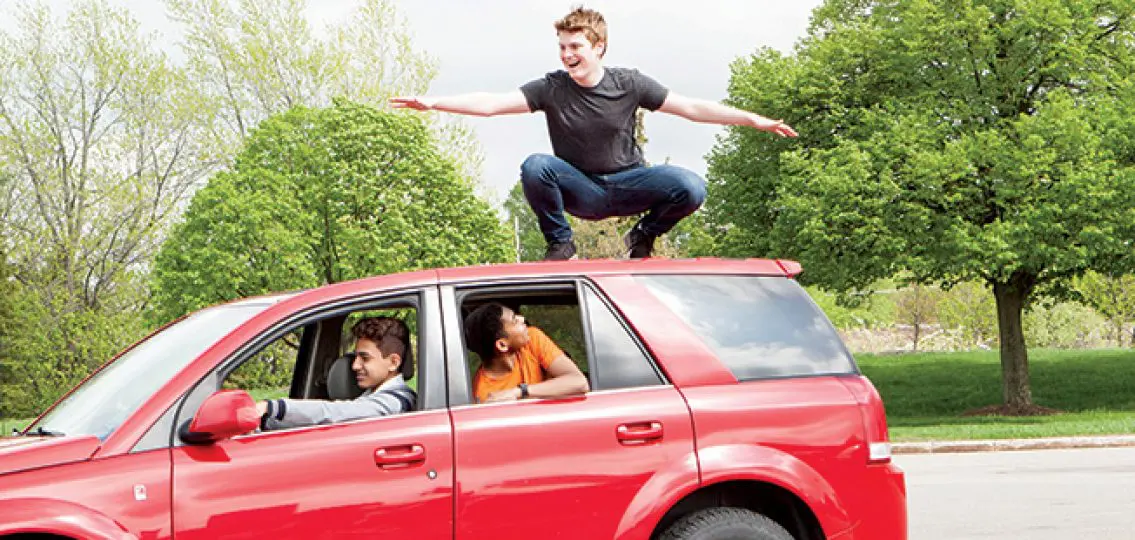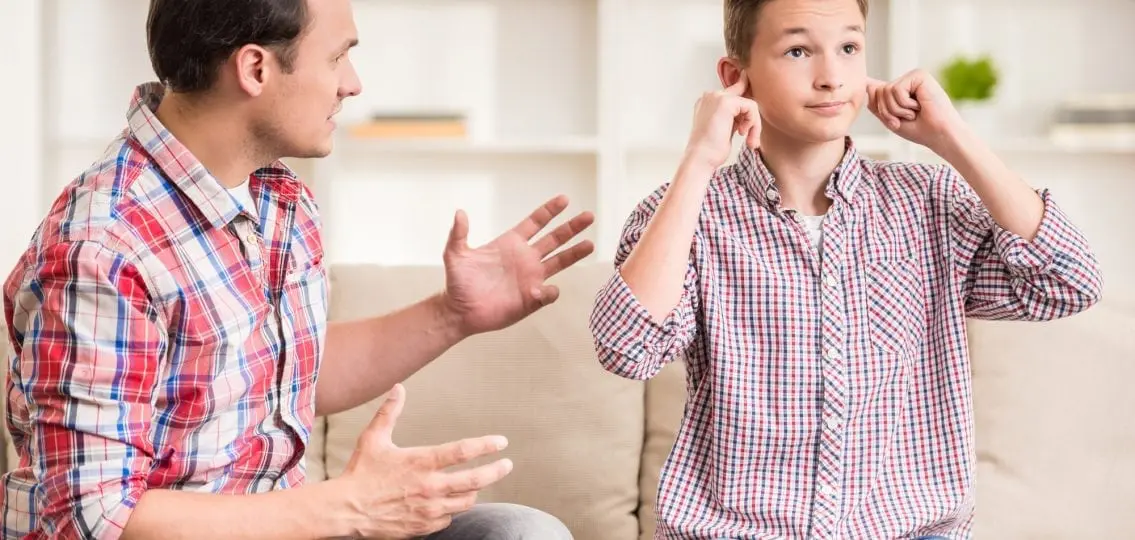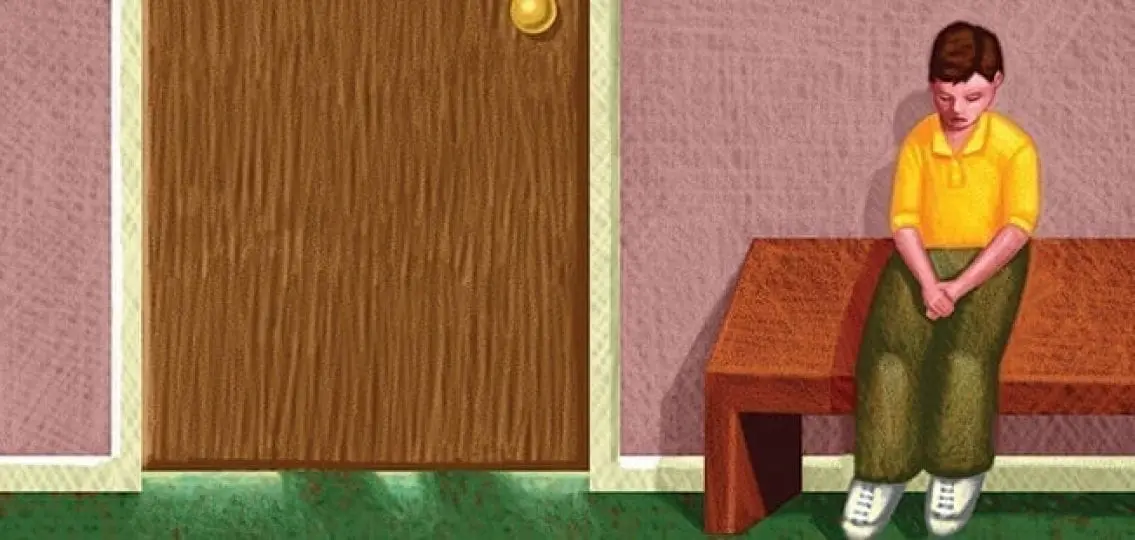What happens when a teen feels one way about a particular issue or problem and the parent has a very different take? At Your Teen, we understand that sometimes you need to look at a problem from multiple perspectives. It can also be helpful to hear from a neutral third party. That’s when we bring in a parenting expert to provide the practical advice you need to bridge the divide and help restore harmony.

Breaking news—Our teens are not perfect. At some point, most good kids will do something not good. For Casey Fenton, that moment happened during tenth grade. Casey, his mom Melissa, and psychologist Matthew Rouse offer their perspective on messing up. You get the whole picture.
 TEEN | Casey Fenton
TEEN | Casey Fenton
Like many teenagers, my early school years were completely trouble-free. In fact, I couldn’t remember being called to the principal’s office or getting a detention. I was a good kid who rarely misbehaved. I feared not only what the school would do to me, but what my parents would do to me.
However, my outstanding personal record came crashing to a halt my sophomore year of high school. During tenth grade, I got caught up with the cool kids. We were your typical high school boys doing typical immature high school things like making messes, stealing small items from high school property. But it wasn’t typical for me. I suddenly went from being the good kid to a rebellious punk teenager in a matter of just a few very regrettable days.
I’ll admit, it was exhilarating. Doing something I knew was very wrong and wondering if I would get caught was exciting. I was finally having fun (or so I thought) and justifying all of it with a “Well I’m only gonna be a teenager once!” kind of attitude. Nothing really gives you that rush like finally fitting in with the cool kids.
My 15 minutes of fame suddenly ended with the dreaded announcement, “Can Casey Fenton please report to the front office immediately?” I knew what it was about—the mess a bunch of guys and I had made of the school bathroom. And I could hear my mother’s voice before I even stepped into the principal’s office. Would she still love me? How could I explain this? What will happen to me? Why did I do something so out of character? Was the rush of going a little wild worth any of the grief I’m about to watch my mother suffer through?
And my parents were, of course, upset. Looking back, the worst part for me was not the punishment, but the disappointment I felt in myself and the regret I felt about everything.
I was lucky that my parents were firm and that they also talked openly about the many times they had made poor choices as teenagers.
The realization that my parents had messed up too, that they were normal teenagers who had not been perfect 100% of the time, and yet they still had grown into great adults was the best rehabilitation I ever received.
It gave me the confidence to not let one bad set of choices define me or my future.
And, yes, I did indeed learn another big lesson—that all the choices I make are my choices, and the guilt I felt having my parents think my misdoings were their fault is something I never, ever want to feel again.
Casey Fenton is a student at Florida State University, majoring in communications/digital media.
 PARENT | Melissa Fenton
PARENT | Melissa Fenton
I was always the “My kid would never do that” kind of mom—until one day, I wasn’t. And that was the day my very perfect teenager became very not-so-perfect, in an instant and shocking way.
Here was a kid who had never seen the inside of a principal’s office his entire childhood. This was the kid who had never had a detention or a behavior warning and never did one single thing to necessitate the need for a parent-teacher conference. He sailed through elementary, middle, and half of high school unscathed.
And there I sat, proud of this perfect kid I had raised and 100% in denial of the fact that even the best parents (with seemingly the best teenagers) will one day have to face the fact that all kids mess up. They just do.
I now realize (having learned the hard way) that the teen brain is wholly incapable of quantifying consequence and teens are also at the most impressionable time of their lives. Add those two together and there is a very high probability that even the most moral teenager will one day do something so completely dumb and out of character, it will have you shaking your head in utter disbelief.
| [adrotate banner=”173″] |
It happened to me. And if it happens to you, here are some lessons I learned.
- When good kids do bad things, it is in no way a reflection of your parenting. Period. One hiccup is not a summation of your 15+ years of childrearing.
- Letting them fail enormously and in front of everyone you know is going to sting badly. So what. Let it. It doesn’t sting forever.
- Be honest about your own failings when you were a teenager, reminding your teen that everyone messes up, and it is not an indication of their future. Translation: High school is just a blip on a very, very long life journey.
- Stress the importance of what can be learned through life’s great missteps and failures. It isn’t what we do when we fail and fall that matters—what really says everything about us is how fast we get back up, brush ourselves off, and do the right thing.
Both you and your teenager will come out of this better, stronger, and more humble people. Trust me.
Melissa Fenton is a freelance writer and adjunct faculty librarian. She is a mother of four sons, and writes about modern motherhood and parenting teenagers. Find her at 4boysmother.com.
 EXPERT | Matthew H. Rouse, Ph.D.
EXPERT | Matthew H. Rouse, Ph.D.
Casey’s mother wrote: “One hiccup is not a summation of your 15+ years of childrearing.”
I understand and support the sentiment. Parents shouldn’t feel like failures when their children inevitably slip up.
However, I would like to offer a slightly different perspective. In this situation, Casey’s behavior, but more importantly his response to his mistake, is a reflection of the parenting he has received up to that point. I would argue that the total sum of parenting—every praise given for a positive behavior, every limit set, every consequence given, every time he was allowed to work something out on his own, every time he was comforted—has resulted in a positive outcome.
Because of effective parenting, Casey was able to learn from the mistake and course-correct before going further down that path.
In my work with parents and their children, I frequently make the comparison between kids and scientists. As they develop, children test out different behaviors, sometimes just to learn about the effects of those behaviors. What happens when I lie to my parents? Are there consequences when I steal something that doesn’t belong to me? What happens when I say something mean to a friend? Conducting these experiments is an essential part of their moral development, and it’s not something parents can prevent.
Where smart parenting becomes essential is in the aftermath of such experiments. Casey’s mother uses a beautiful array of strategies to help ensure that he learns from this mistake. She uses a mix of firmness and validation to communicate simultaneously that the behavior is unacceptable and that she understands it. Importantly, Casey’s parents gave him a consequence for the behavior. They also used the mistake as an opportunity to connect with their son—a master class in authoritative parenting.

Teens possess different levels of skills when it comes to learning from mistakes. Some teens like Casey seem to get it right away. Others may need to make the same mistake multiple times before the lesson sinks in. Parents of teens who get stuck in a negative pattern may want to consider getting professional help—especially if the mistakes are affecting the teen’s life or closing off certain options.

 TEEN | Casey Fenton
TEEN | Casey Fenton PARENT | Melissa Fenton
PARENT | Melissa Fenton EXPERT | Matthew H. Rouse, Ph.D.
EXPERT | Matthew H. Rouse, Ph.D.


